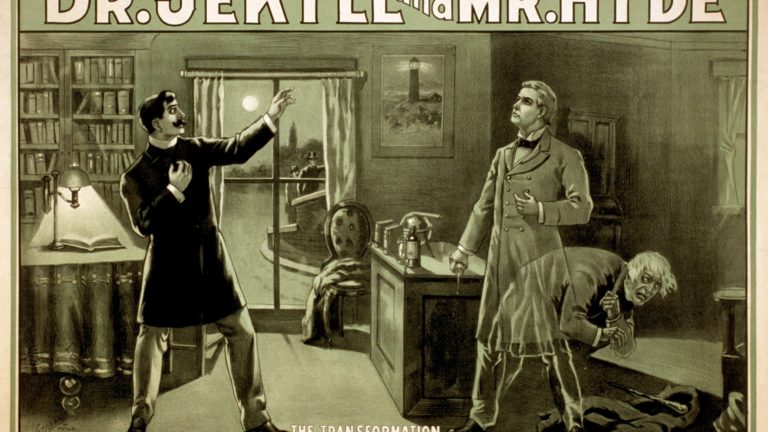It’s all over the headlines. Trump must abandon his business interests, otherwise he might use his new power in corrupt ways. And so he must build a wall between business and public service. For his part, he has sworn to clean up Washington, i.e. drain the swamp, because the whole regime is obviously corrupt. Indeed, the election itself became a fight over who is more corrupt, with daily revelations about conflicts of interests, cover-ups and lies, accusations and denials, promises of jail time, and so on.
All these accusations presume some hoped-for ideal: some platonically pristine public sector that served not itself and special interests but the whole body of the citizenry. Ever since there was government, there have been those want to purify it from its excesses and corruptions, rid it of its grafters and operators, and cleanse it from any taint of the sin of private interest. Government should serve the people with an eye to the common good, they declare, and it should be part of the solution to the problem of evil in the world, and not contribute to the problem itself.
Government, even given its gargantuan size and scale, should be good, and that means morally good, else it can’t possibly hope to be effective. But there’s a problem. No one agrees precisely what this goodness looks like. The left is scandalized by a government that plunders foreign nations, spies on its citizens’ private lives, and unleashes the cops against innocents, but it urges that same government to plunder property owners and spy on their commercial lives. The right is disgusted by a government that slathers billions on deadbeats but wants the same government to squander billions on military contractors and goons that enforce bad law.
If only we could separate the good from the evil!
Of course there is no agreement on what constitutes the good and evil, but both Left and Right will forever agonize about why they must put up with what they don’t like in order to get what they do like out of government. But it is an unstable compromise, and thus do both sides work constantly to somehow make government do good things (however defined) but not bad things (however defined).
Now to the literary metaphor.
Robert L. Stevenson’s classic novel The Strange Case of Dr. Jekyll and Mr. Hyde was not just about a person whose personality changed because of a potion he drank. Dr. Jekyll was an idealist and an upright citizen, a pillar of the community, a model of the Victorian gentleman. Inside he was tormented by hypocrisy. He was annoyed at the constant presence of the tension between good and evil that lived within him. He sought to separate them from each other so Dr. Jekyll could have pure motives in all he did, and his alter ego could pursue bad works without tainting the good Doctor.
As he puts it:
It was on the moral side, and in my own person, that I learned to recognise the thorough and primitive duality of man; I saw that, of the two natures that contended in the field of my consciousness, even if I could rightly be said to be either, it was only because I was radically both; and from an early date, even before the course of my scientific discoveries had begun to suggest the most naked possibility of such a miracle, I had learned to dwell with pleasure, as a beloved daydream, on the thought of the separation of these elements. If each, I told myself, could be housed in separate identities, life would be relieved of all that was unbearable; the unjust might go his way, delivered from the aspirations and remorse of his more upright twin; and the just could walk steadfastly and securely on his upward path, doing the good things in which he found his pleasure, and no longer exposed to disgrace and penitence by the hands of this extraneous evil. It was the curse of mankind that these incongruous faggots were thus bound together – that in the agonised womb of consciousness, these polar twins should be continuously struggling. How, then were they dissociated?
Dr. Jekyll finds a way, thanks to a scientific process he fails to reveal, that involves some scarce salts. He drinks the potion. Incredibly, he is transformed into another person who is shorter, hairier, and more primitive in emotions and desires – the very embodiment of evil. Mr. Hyde is a loathsome character who feels no remorse and discombobulates everyone around him. Eventually he is guilty of murder.
He drinks the potion again, and turns back into Dr. Jekyll. But there is a hitch. Whereas Dr. Hyde was pure evil, Dr. Jekyll is not pure good. He is the same mix of tensions that he was before. He was nothing more than “that incongruous compound of whose reformation and improvement I had already learned to despair. The movement was thus wholly toward the worse.”
Why Can’t We Purge Evil?
Well, Dr. Jekyll’s narrative is a pretty good description of the results of most good-government legislation. It creates new obstacles for the old evil forms to get through but strengthens the evil by making the public less wary of it. A government perceived as righteous might be more dangerous than one that is looked upon with suspicion. Sometimes corrupt government can actually be better than good government, if it means that unjust and unworkable laws can be bypassed through bribes and graft.
Every few years, for example, many big cities elect a mayor who promises a clean sweep of the bad and a restoration of the good. A bar owner told me that he always dreads these changes, because it means absurd fire codes and license requirements are enforced to the hilt. Under a corrupt regime, he needs only to bribe a few policemen and bureaucrats. Under good government, he has to cough up tens of thousands of dollars for lobbying groups, lawyers, and legislative specialists in order to keep his business running.
I encountered the same in Brazil recently. People tell me that the bribes that the police ask for are actually rather workable, and far more so than being dragged through bureaucracy courts with attorneys on your side. It is far easier to take out some cash and go on your way. Only a few years ago, it was common to keep the bribe in your papers, so that it was present when the police asked to see identification. But that was made illegal. Now the bribes are harder to give and require more subtle signaling devices.
Mr. Hyde Will Not Be Contained
In Stevenson’s book, Mr. Hyde grows stronger the more he spends time separate from Dr. Jeykll. Whereas he was once a temporary indulgence, he eventually becomes a full-time obsession even as the good side of Dr. Jekyll seems to shrink and become less robust.
So it is with good-government movements. Once the State is reformed, the next step is obvious: a clean State that does wonderful things, untainted by nefarious practices, should be permitted to expand to do those good things with more liberality and efficacy. And perhaps this is why government reform movements in the last century and a half ended up expanding rather than shrinking the State. And the expanded State does not end up doing good; it draws ever more evil to its side and results in an expansion rather than a shrinking of corruption.
The same is true of the pressure groups that have a selective interest in the activities of the State. The Right believes the government should provide for the common defense but in so believing turns a blind eye to ghastly abuses that occur in wartime. The Left believes that the government should redistribute wealth and thereby pretends not to notice that that requires increasing violence against property and subsidizes the worst propensities of human nature.
As government grows ever bigger in the guise of doing good, its secret capacity for doing evil expands at a far more rapid rate. Whatever true good that government might be capable of doing is swamped by growing levels of corruption, graft, payoffs, violence, arbitrary rule, and all the rest of the institutions that the movement was trying to force away.
One need only reflect on the bailouts of 2008, or the proposed infrastructure spending bill of 2017. In the abstract, these programs can only do good; in reality, they always end up generating astonishing amounts of evil, and we look back in shock that this could ever have happened.
Another example is in the piecemeal industrial policy that is gradually emerging in the Trump era. Trump and Pence threatened Carrier airconditioning with tariffs on its products if its plant were to move to Mexico. But through negotiations, and some black box of promised benefits for sticking around, nearly 1,000 jobs were saved. That’s good, right?
As the New York Times reports:
Since the deal was disclosed on Tuesday, critics have pounced on Carrier’s receipt of $700,000 a year in incentives from the state of Indiana – just the kind of corporate giveaways Mr. Trump knocked as he slammed Carrier on the campaign trail last Spring. Carrier officials confirmed that the state of Indiana has offered the company a multiyear $7 million incentive package.
Expand this model of threats, subtle blackmail, incentives for doing what politicians want, and promised payoffs to the country at large, and you have a problem. Pushing for good will surely unleash new forms of evil.
Here we have the real lesson of the misbegotten idea that government can be purified. As Dr. Jekyll admits later: “I have been made to learn that the doom and burden of our life is bound for ever on man’s shoulders, and when the attempt is made to cast it off, it but returns upon us with more unfamiliar and more awful pressure.”
What we need is not more goodness in government. We just need far less opportunities for Dr. Jekyll to drink and govern.














Add comment